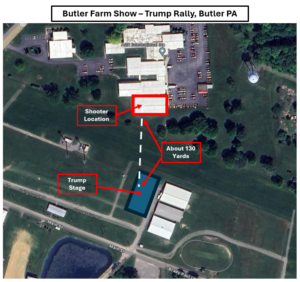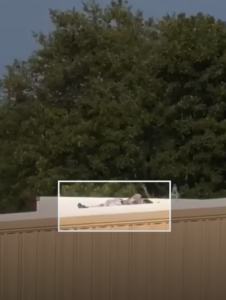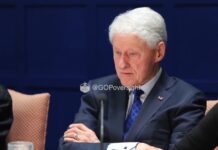In an alarming and avoidable event, an armed assailant shot at former President Donald Trump during a campaign rally in Butler, Pennsylvania. The Secret Service had previously identified a nearby rooftop as a possible security risk. Despite this knowledge, they failed to secure the building, allowing the shooter to take position and open fire.

This incident has ignited a flurry of blame and questions about who should be held accountable. Both the Secret Service and local law enforcement were involved in the security planning. However, the primary responsibility rests with the Secret Service, given their role in safeguarding our leaders. They should have ensured all potential threats were mitigated, particularly those they were already aware of.

Overlooked Red Flags
The building from which the shots were fired was owned by a glass research company and situated next to the Butler Farm Show venue. It was within 130 yards of the stage, well within range of a semiautomatic rifle. Sources reveal that the Secret Service acknowledged this rooftop as a threat. A former senior Secret Service agent claimed that measures should have been taken to secure the building or have someone stationed on the roof.
Regrettably, this did not occur. Instead, the Secret Service designated that rooftop as local law enforcement’s responsibility. While this is common practice, it does not absolve the Secret Service from their duty to ensure total security. The failure to secure this crucial point indicates a lapse in judgment and coordination.
A Tragic Outcome
Just minutes into Trump’s speech, shots were fired. Trump instinctively reached for his right ear, which was later found to be grazed by a bullet, and fell to the ground as Secret Service agents rushed to protect him. Trump emerged with blood on his ear and face. One spectator was tragically killed and two others injured. The shooter, identified as 20-year-old Thomas Matthew Crooks, was eventually neutralized by Secret Service personnel.
Witnesses outside the event’s security perimeter had pointed out the gunman to law enforcement minutes before the shooting commenced. Despite these warnings, the shooter was able to open fire, resulting in chaos and tragedy.
Who’s at Fault?
Butler County District Attorney Richard Goldinger stated that the Secret Service was responsible for overall security and role assignments. Local law enforcement, including sniper and quick response teams, were involved but failed to secure the roof from which Crooks fired.
This incident has been dubbed as the most significant failure of the Secret Service since President Ronald Reagan’s assassination attempt in 1981. Former agents and security experts are questioning how such a fundamental oversight could have occurred. Anthony Cangelosi, a former Secret Service agent, stressed that even if local law enforcement failed in their duties, the Secret Service is ultimately accountable for mitigating all threats.
The Larger Concern
Beyond this particular lapse, there are grave concerns about the overall competence of the Secret Service. Under Director Kimberly Cheatle’s leadership, the agency has heavily focused on Diversity, Equity, and Inclusion (DEI) initiatives. Prioritizing DEI goals over hiring based solely on merit could potentially affect any organization, especially one dealing with matters of life and death. This DEI fixation may be detracting from the core mission of protecting our nation’s leaders, leading to a decline in the agency’s effectiveness and operational readiness.
Concluding Thoughts
The shooting at Trump’s rally in Butler, Pennsylvania, has exposed critical flaws in the Secret Service’s security approach. While local law enforcement had a role to play, the primary responsibility lies with the Secret Service. Their failure to secure an identified risk area is unacceptable. As the agency reassesses its priorities, it must not lose sight of its primary task: ensuring the safety of those they are sworn to protect. It’s time for the Secret Service to reevaluate and refocus on its fundamental mission to prevent such oversights in the future.
We welcome your thoughts on this situation. Please share your comments below!



